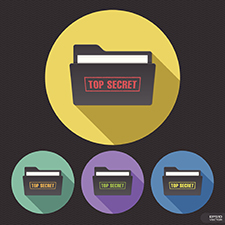 After a while, all the different interview tips can begin to run together and even feel stale. Dress to impress – done. Do your research – check. Be prepared – got it. It can seem like every job seeker out there is following the exact same advice, and you begin to question if it’s even possible to stand out from your competition during job interviews.
After a while, all the different interview tips can begin to run together and even feel stale. Dress to impress – done. Do your research – check. Be prepared – got it. It can seem like every job seeker out there is following the exact same advice, and you begin to question if it’s even possible to stand out from your competition during job interviews.
The truth is, though, many candidates don’t follow commonsense advice, and actually doing what is recommended will put you at the top of the group. But, how can you go from the top 10 to the number one choice? The answer is to give potential employers what they’re seeking. An article from Forbes specifically pinpointed five things every employer wants to hear, so check out these statements and how you can incorporate them into an interview.
“I am a loyal employee.”
Talented employees don’t present much value to employers if they lack loyalty, so hiring managers look for candidates who have a history of allegiance and appear to want to stick with a job for a long period of time. That means you should never be negative about past employers in an interview or in your resume. Instead, focus on the opportunities they provided to you and what you learned. Also, make sure you express excitement about this new job opportunity and how you would like to stay with the company long term.
“I will complete the job/assignment you give me with excellence.”
Hiring managers usually don’t have any problem narrowing down candidates to the top few that could adequately complete the responsibilities of the position. What they really want to find though, is the candidate who will go beyond adequate and actually excel at the job. To show you’re willing and able to complete assignments with excellence, communicate in detail some examples of how you’ve done this in previous positions. And, if you really have prepared for the interview and done your research, you should be familiar enough with the new job’s responsibilities to give an example of how you could apply a new idea to one of the tasks to improve the process or results.
“I am open to learning, adapting, adjusting, and to receiving feedback on how I can improve.”
The ability to adapt is a top commodity in today’s workplace, and employers want to hire people who are able to adjust to the company’s, customers’, and industry’s changing needs. During the interview, highlight the wide variety of your experiences, skills, and interests, and how you could apply them to this new position. Also, give examples of how you’ve sought to learn a new skill on your own, used feedback constructively to change how you approached a project, and adapted your plan when a project didn’t go as expected.
“You will never have to tell me what to do twice.”
The workplace is a busy place, and managers normally don’t have time to continually tell employees what they need to do. They need workers who can listen the first time they have tasks explained to them and then can go do their jobs with confidence and dependability. And, while this is a little more difficult to show during an interview, it is still something that you should at least mention. One good way to get this idea across is to discuss a situation where you took on responsibility and completed a task with minimal supervision. Carefully listening to the interviewer and not making them repeat themselves is another way to prove that you’re up for the job.
“I am easy to correct and instruct.”
While this one really goes along with the previous two statements, the fact that three of the things employers want to hear have to do with listening, following instructions, and receiving feedback is a major sign that you need to incorporate these issues into what you share during your interview. Employers understand that workers, especially new hires, won’t know exactly what to do and will make mistakes – they are most concerned with how you’ll handle the learning process. So, again, highlighting how you’ve learned new skills and the process that was involved is very important for setting you apart.
At the end of the day, an employer wants to find the best candidate for the job. Use this to your advantage by giving the hiring manager a full picture of what you have to offer. By communicating to the employer that you have what they’re looking for, you’ll shoot ahead of your competition and to the top of the hiring list.
Are there other things you’ve discovered potential employers really want to hear? Share an example of how you’ve communicated your value during an interview in the comments section below.
Movin’ On Up is brought to you by Express Employment Professionals.



